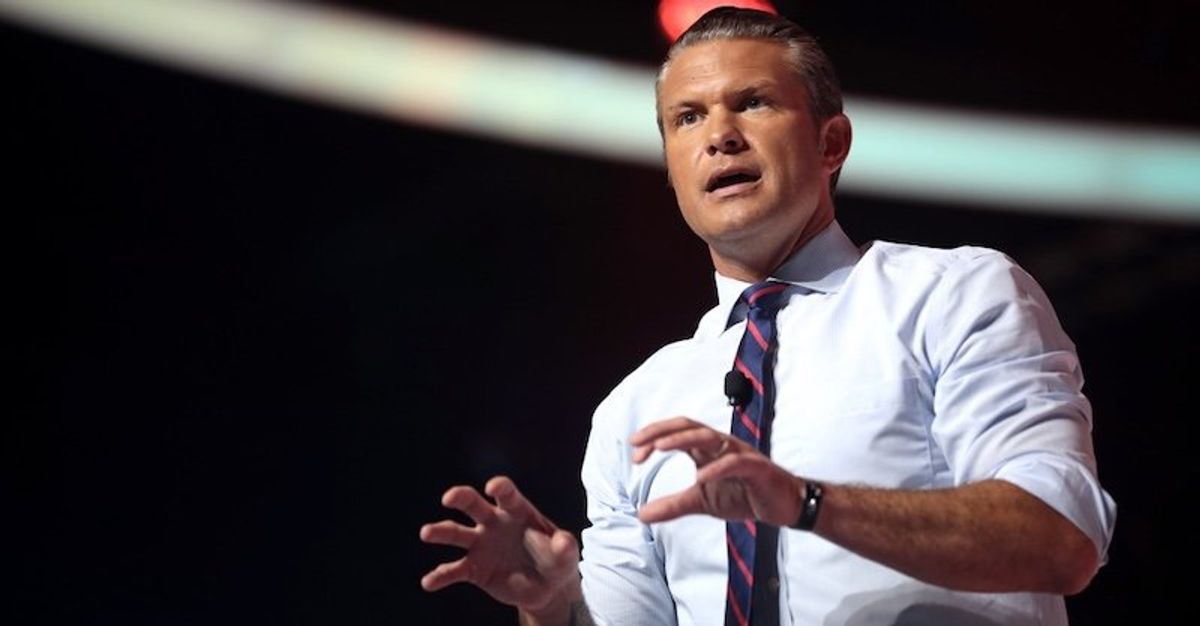
An investigative reporting outfit explained why editors spiked a report on defense nominee Pete Hegseth's acceptance to West Point.
Donald Trump's nominee to lead the Pentagon posted a copy of an acceptance letter Wednesday morning on X, claiming the nonprofit ProPublica planned to publish what he dismissed as a "hit piece" on the beginning of his college career, but the newsroom's editor explained how the story was reported – and why it wasn't published.
"Here’s a story about how journalism works," ProPublica editor Jesse Eisinger posted on X. "Spoiler Alert: This is how we decide *not* to publish. We were recently looking at Pete Hegesth’s different statements over the years about West Point, where he has said he was admitted. First stop: West Point."
ALSO READ: Agenda 47: Alarm sounded about Trump’s dystopian plans for his second term
Reporters contacted the public affairs office, and a spokesperson stated on the record that Hegseth had not applied for admission to the U.S. Military Academy," so they called back to clarify whether that meant he had never been admitted.
"A second spokesperson told us on the record: 'Absolutely 100%. Because he never opened a file,'" Eisinger explained.
At that point, the ProPublica team thought they "had the makings of a significant story," so they moved on to the next step.
"The first rule of good journalism is: No Surprises," Eisinger said. "You must give the subject of a potential story a fair chance to respond to all of the salient facts in the story."
"Why do we do this?" the editor added. "We want to make sure what we have is correct. We care about accuracy. We aim to get both specific facts & the larger picture right. The essential part of this is contacting subjects & being intellectually honest enough to change your mind & drop a story."
So a reporter called Hegseth's lawyer, who "made a lot of angry legal threats to him, but didn’t deny the facts," so they urged the attorney to contact the Trump nominee to make sure he understood what they intended to write.
"A second Hegseth PR person then called," Eisinger said. "He asserted Hegseth still had his letter of acceptance to West Point. We asked him to send it to us, but he just hung up."
That's where the plot thickened, Eisinger said.
"That gave us pause," he said. "But we had the on-the-record info from the academy itself. We went back to West Point. We also sent that Hegseth PR person a screenshot of a West Point email telling us Hegseth hadn’t been admitted."
Hegseth's representative then sent ProPublica an image of the acceptance letter from Lt. Gen. Daniel Christman, who was superintendent of West Point at the time, in 1999, and Eisinger said their reporters went back to West Point, and a representative apologized for an administrative error that indicated the nominee had never applied.
"A review of our records indicates Mr. Peter Hegseth was offered admission to West Point in 1999 but did not attend West Point," an Army spokesman wrote in a statement. "An incorrect statement involving Mr. Hegseth's admission to the United States Military Academy was released by an employee on December 10, 2024. Upon further review of an achieved [sic] database, employees realized this statement was in error. Mr. Hegseth was offered acceptance to West Point as a prospective member of the class of 2003. USMA takes this situation very seriously, and we apologize for this administrative error."
At that point, Eisinger said, editors decided not to move forward with the Hegseth story.
"No, we are not publishing a story," Eisinger said. "This is how journalism is supposed to work. Hear something. Check something. Repeat steps 1 and 2 as many times as needed. The end."




